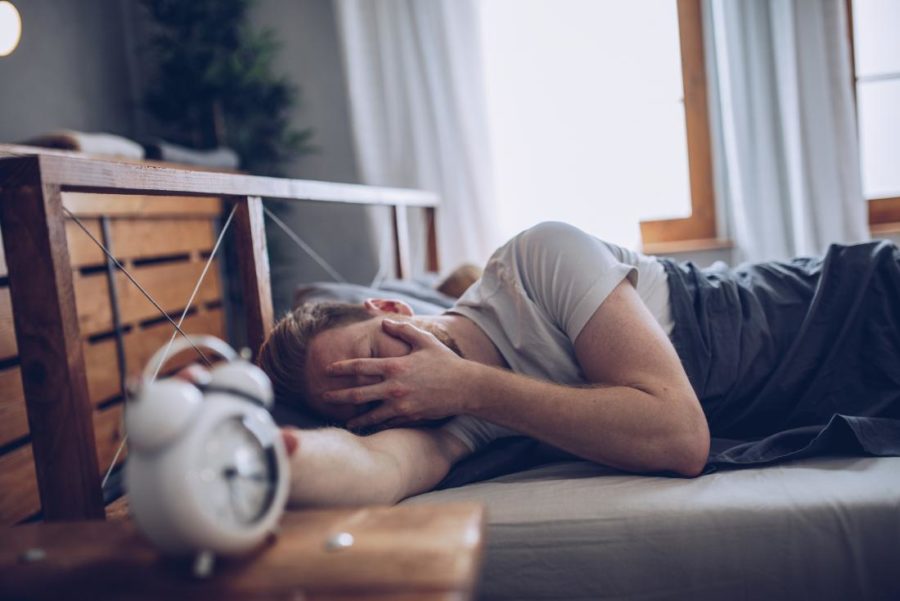How Much Sleep is Too Much Sleep?
Courtesy of Medical News Today
In contrast to common thought, too much sleep can be just as bad as too little sleep.
June 7, 2022
When thinking about how much sleep a person should receive, many people tend to think that the more sleep they get, the better. While it is true that people should strive to get over seven hours of sleep a night, getting too much sleep can actually have adverse effects.
Many people are aware of the severe consequences of not getting enough sleep, including depression, high blood pressure, heart problems, and diabetes (Cleveland Clinic). Many teenagers, especially high school students, receive less than the recommended amount of sleep. This is often due to stress from school, procrastination of homework, and late-night phone use. Consequently, teens acquire what is known as “sleep debt.” This term refers to “the difference between the amount of sleep someone needs and the amount they actually get” (Sleep Foundation). To pay off this sleep debt, teens tend to sleep for more hours at nighttime, which leads to oversleeping.
According to the National Sleep Foundation, people should aim to get seven to nine hours of sleep per night to stay healthy. The closer the amount of sleep received is to seven hours within this range, the better. In fact, Arizona State University Professor Shawn Youngstedt states, “The lowest mortality and morbidity is with seven hours.”
Receiving over nine hours of sleep each night can have serious consequences, and some are similar to the consequences of receiving too little sleep. The health impacts of sleeping too much include higher risks of obesity, diabetes, heart disease, stroke, and depression (Amerisleep). Dr. Safia Khan, a sleep disorder specialist and assistant professor at UT Southwestern Medical Center in Dallas, says that oversleeping can also cause hypersomnia, hormone imbalance, Parkinson’s disease, and dementia. Megan Chou (11) expresses surprise and says, “I had no idea that oversleeping could cause this many problems, so I’ll be extra careful to avoid sleeping too much.”
There are numerous things people can do to prevent oversleeping. To stick to the seven to nine hour recommendation, people can avoid sleeping for more than they usually do on weekends. By doing this, people can not only avoid getting too much sleep, but they can also enjoy morning activities, such as eating breakfast with friends and family or exercising before other events later in the day. People can also consider exposing themselves to brighter light in the morning by leaving blinds open or using a dawn simulator that emits light to replicate the morning light from sunrises. Through these methods, people can wake up more easily and avoid sleeping for a longer time than they should.



































